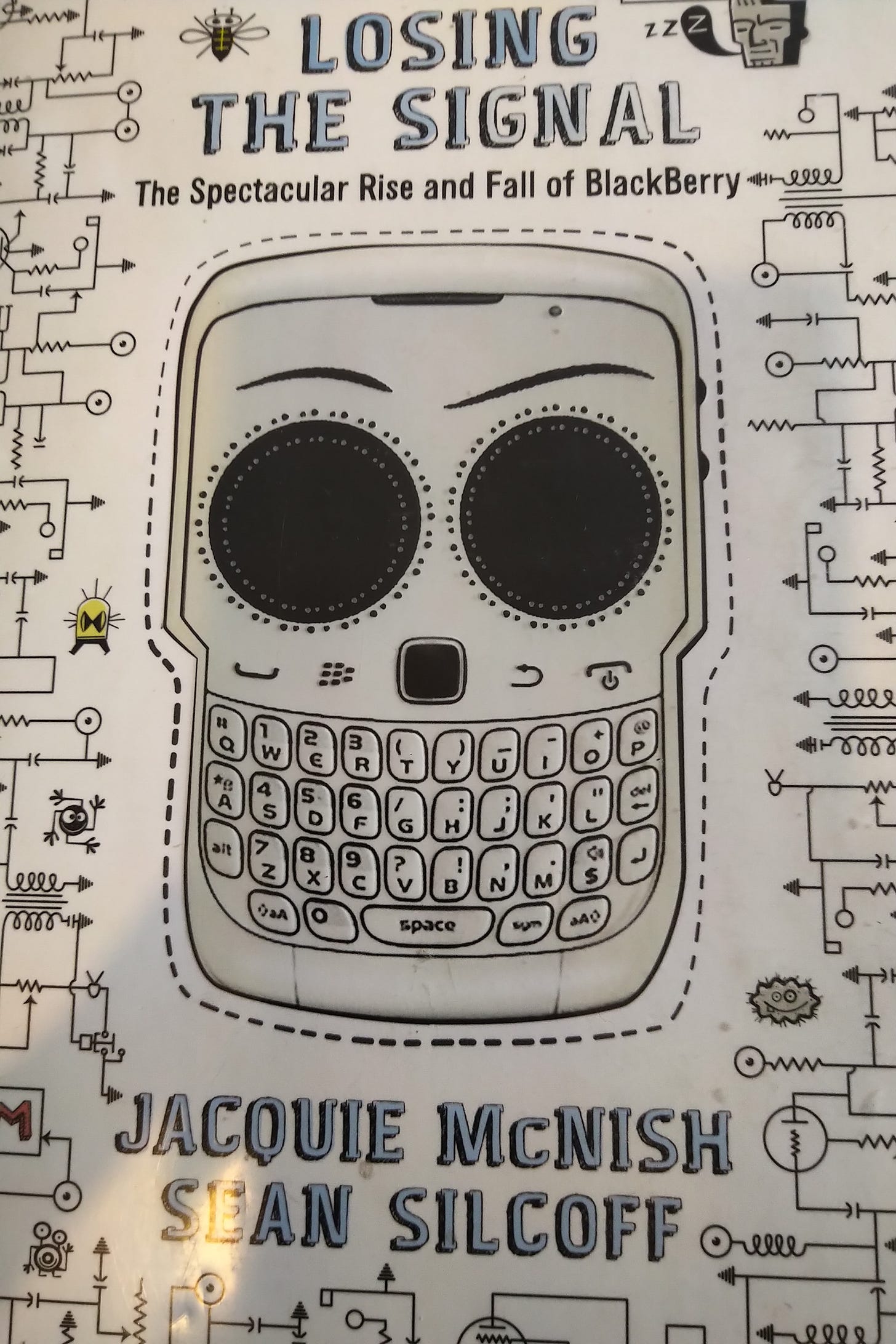This week I went to a major cinema on a Tuesday night to see a Canadian movie based on a true story. It was packed with people laughing out loud. Clapping spontaneously at certain moments, even.
That has never happened to me before in my life at a Canadian film. I repeat: belly laughs in a packed theatre. On a weeknight. Not at TIFF or a rep cinema.
Yes, it’s the BlackBerry movie. Run, don’t walk, to see it.
(I typed out that last sentence on my KeyTwo to friends late last night. So I might be slightly biased.)
The script, the acting, the music selections (especially the note-perfect bookends), the verité camera: it couldn’t be better. It skips through a lot of dense material at a brisk pace and light touch. Of course, it plays a little loose with the truth at some (read: many) points—but so does every single “based on a true story” out of Hollywood you’ve ever seen. The two main characters are cartoon caricatures—but that’s why the movie works.
As you likely know it’s an underdog story of a small-town company taking on the tech giants and winning—before the tech giants start dancing circles around them during a time of exponential change. The fall of BlackBerry is the story of bad luck, of hubris, of American Goliaths eventually winning, of some dubious stock dating, of surrendering to Chinese manufacturing. The movie focuses mostly on the whirlwind rise, because that’s where the laughs are. It spends less time on the fall; they don’t even get into the patent-trolling the company faced, which was, in reality, more distracting than Jim Balsillie’s NHL dreams. But that’s what the book is for.
Almost as entertaining as the film is the book it optioned: Losing the Signal, by Jacquie McNish and Sean Silcoff (both were Globe reporters during BlackBerry’s heyday; Silcoff is still there). I can’t recommend that highly enough, either. It, too, is laugh-out-loud funny at times. It gets into granular detail in an oddly gripping way: the sign of great non-fiction writing. And it provides a complete contextual analysis of what went right and what went wrong. Unlike the movie, it doesn’t have to bend, or condense, the truth to tell a great story. Great cover, too:
I rarely go to the movies anymore, but the last three films that dragged me out of the house were Canadian: Women Talking, Chandler Levack’s I Like Movies, and BlackBerry (a.k.a. Men Talking). The latter two are hilarious. I’m looking forward to seeing Brother, the multi-award-winning film set in my childhood neighbourhood, now that it’s on the rep circuit; that film, like Sarah Polley’s, is likely not at all hilarious.
I can’t remember the last year there were four Canadian movies I went to see in a theatre, never mind loved.
Speaking of Canadian underdogs who take on the world: let’s talk about a prize that celebrates music (mostly) ahead of the mainstream.
Polaris Music Prize jurors had to file their long list ballot on Sunday. The long list will be announced on June 13.
As always, more than 200 album were officially suggested by fellow jurors. That’s the only way you can be considered for this prize: if at least one juror announces to the group that you made a record worth considering.
Doesn’t matter how many records you’ve sold, what part of the country you’re from, or whether or not you have a publicist. It just takes one fan on the jury to get people talking.
The long list process is a free-for-all. I took time to listen to at least a bit of every album suggested, although that’s not something expected of all jurors—that’s a tall order. Voting for the short list of 10 records is much more focused; jurors are expected to carefully consider each of the 40 records. Especially because almost everyone has some empty spots on their ballot after some favourites didn’t make the long list.
For paid subscribers, here’s how I voted and what I almost voted for:
Keep reading with a 7-day free trial
Subscribe to That Night in Toronto to keep reading this post and get 7 days of free access to the full post archives.



